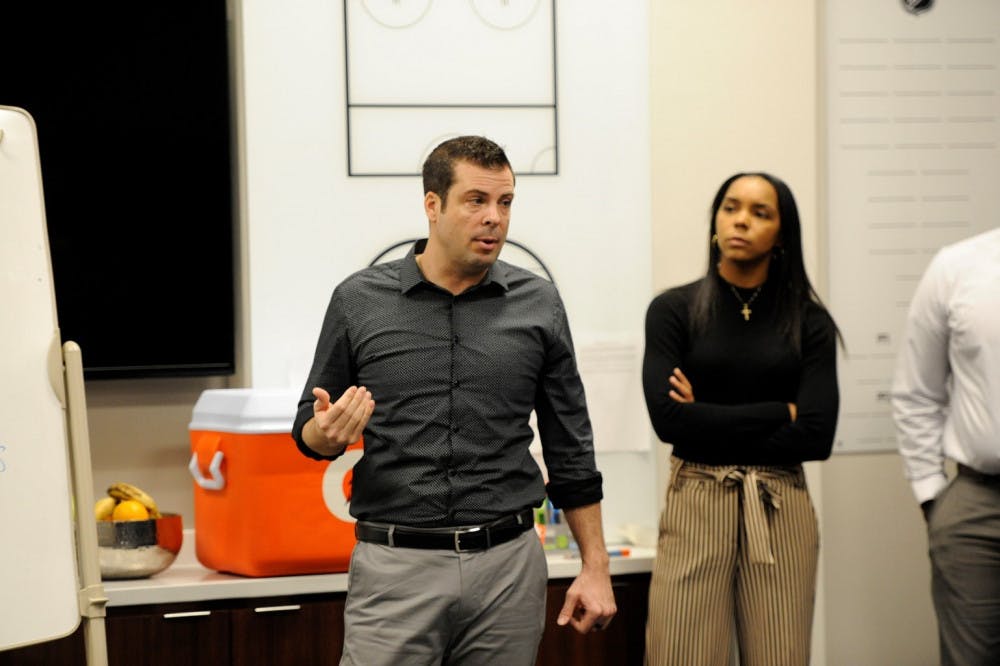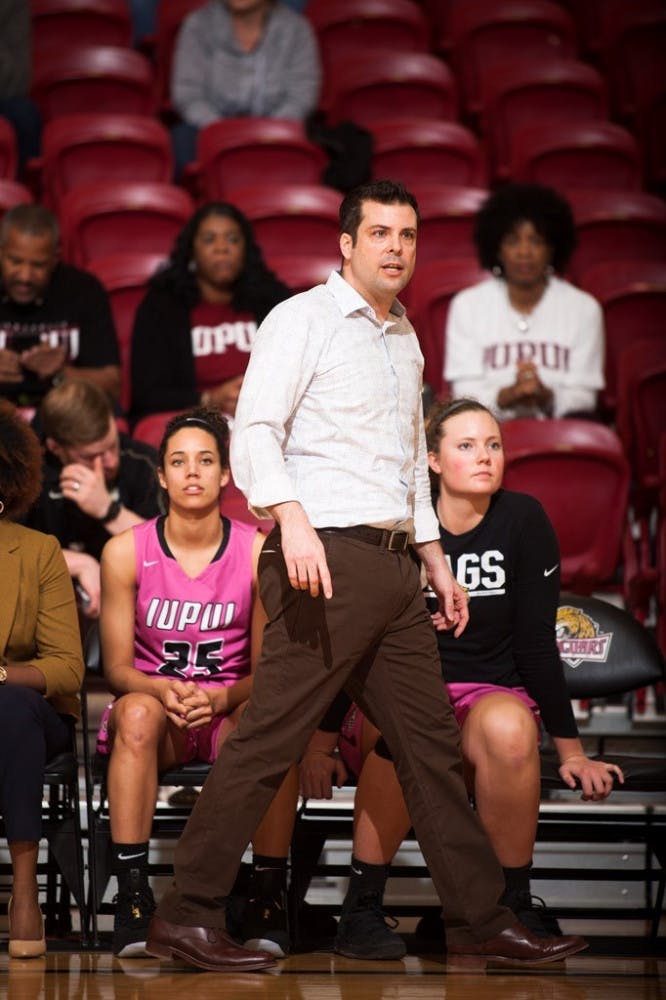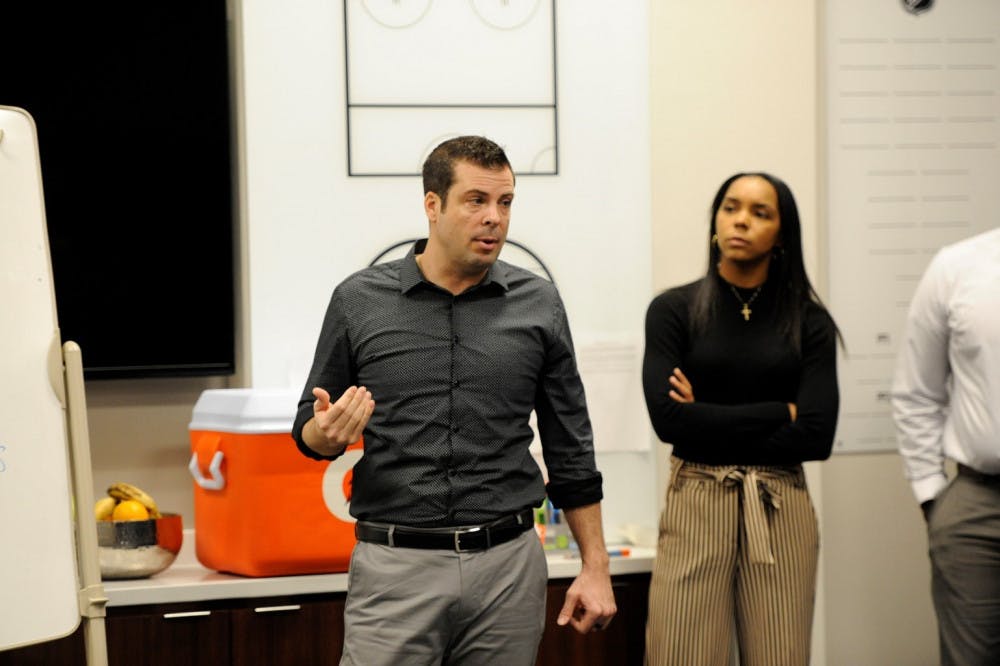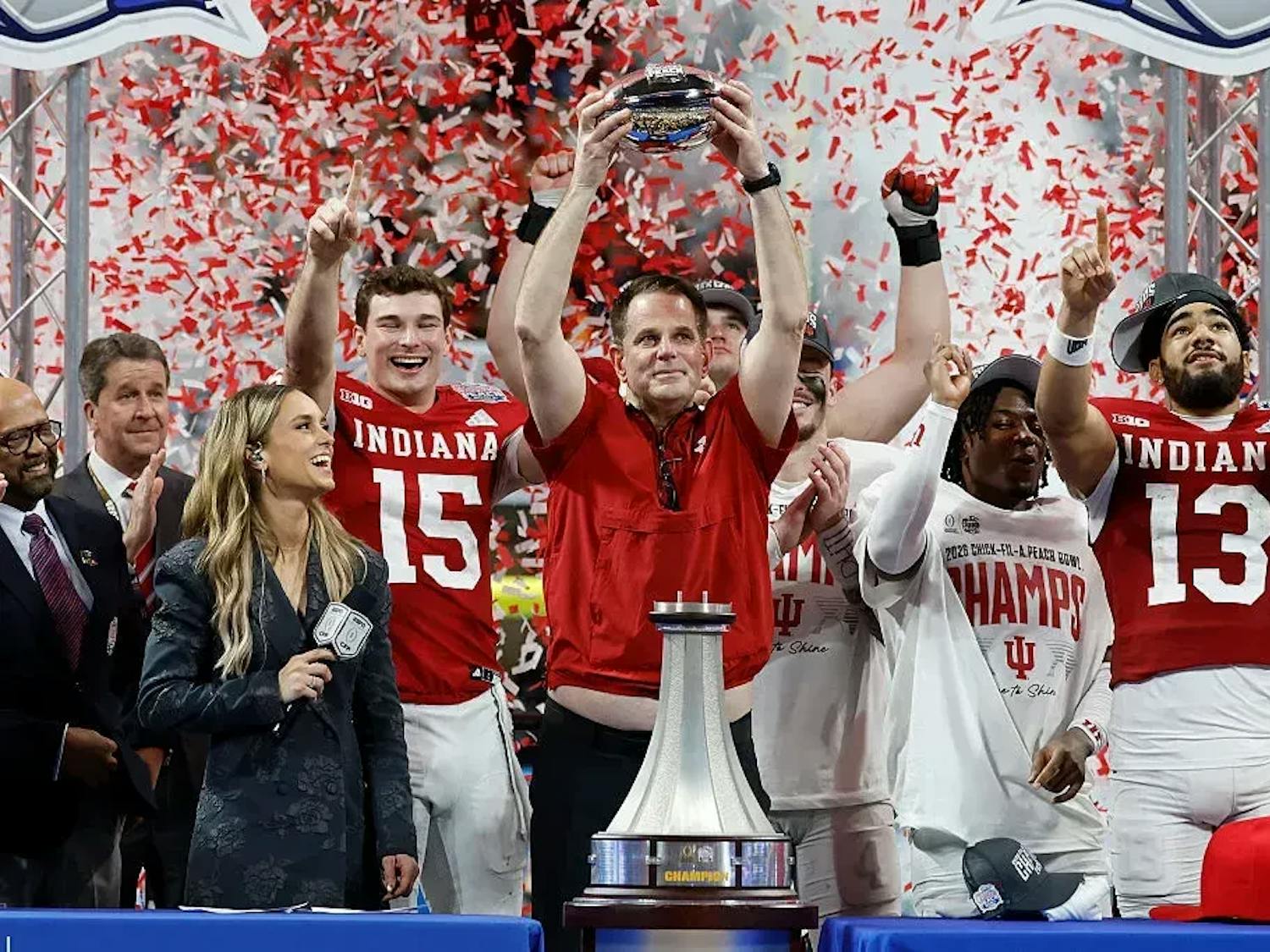Austin Parkinson faced an opportunity that would change his life forever. Before the 2010 season, IUPUI had offered him the head coach position for the women’s basketball team. He had no experience coaching women and had always seen himself as a men’s coach. Eager to call a team his, he accepted.
Handed a 3-win team and tasked with rebuilding the IUPUI women’s basketball program, Parkinson faced an enormous mountain to climb. As daunting as it would have been to some, he was prepared for the challenge.
Parkinson’s love for basketball started at a young age, but his influences go deeper than his hometown state of Indiana’s basketball culture. He was born into a family of Indiana basketball’s elite.
His father, Bruce, is a member of the Indiana Basketball Hall of Fame and Purdue’s all-time leader in assists. He was captain of the 1975 Pan-Am team which took home the gold medal.
His grandfather, Jack, is a member of both the Indiana and Kentucky Basketball Hall of Fame. He played his college ball at the University of Kentucky under legendary coach Adolph Rupp. There, he won a National Championship in 1948

and was a second team All-American in 1946.
The younger Parkinson set out to make a name for himself at Northwestern High School in Kokomo. There, he was a four-year starter and garnered the attention of Division I programs. Still, the shadow of his lineage lingered.
“It seemed like, for a long time, every article that was ever written about me was about being the son of Bruce Parkinson,” Parkinson said.
He followed his father’s footsteps to Purdue, where he played under hall of fame coach Gene Keady. He left Purdue tenth in program history in assists and equipped with the necessary experience for the next level. Parkinson used his past and present to create his future.
“I knew I wanted to be a coach by about the time I was in fifth grade,” said Parkinson. “I always knew I was going to go into coaching in some form or fashion.”
He found his opportunity at IUPUI as an assistant with the men’s team. Instead of running practice or making game plans, Parkinson made the team milkshakes and did their laundry. In 2010, four hours from home on a recruiting trip, he received a phone call from IUPUI’s then-athletic director Michael Moore. He wanted Parkinson to be the next head coach of the women’s basketball team.
It was an interim position, meaning he was not guaranteed to return after that season. He accepted four days before practice began and inherited a team that won just three games the season prior.
In his first season, working with a roster that wasn’t his, everything stayed the same. IUPUI won just four games and finished last in the Summit League. Even with the poor results, Parkinson was hired full-time after the season, thanks in large part to the policies he had already put in motion.
“In that first year, I coached the program as if I was going to be the coach for the next five years,” Parkinson said. “Some first-year coaches try to do things gimmicky to try to get wins. I said no. We’re going to play with the principles and system that we’ll use three years from now.”
Despite the poor results, the program was trending upwards. Before Parkinson was even hired as the full-time head coach, he landed a commitment from Nevena Markovic, who would become his first 1,000 point scorer.
“I wanted to be part of the change and part of the turn around of this program,” Markovic said. “I knew it was going to be difficult, but the vision Coach P had for the program and how he wanted to do it was really something that attracted me to IUPUI.”
The culture that Parkinson implemented was evident in his second season at the helm. The team won 13 games in 2011, a nine-win improvement from the previous season. The improvement could be attributed to Parkinson’s work on the recruiting trail.
Players from his 2010 team hailed from all across the United States. Instead of following this trend, Parkinson turned his attention inward and recruited heavily in, and around, Indiana. Relationships with area high schools had deteriorated under previous coach Shann Hart, forcing Parkinson to rebuild them.
Indiana high schools brought him most of his talent, including Mikale Rogers. Rogers, who now plays professionally overseas, was a high school All-State center in 2013. With plenty of other options, she chose Parkinson and IUPUI.

“It was never really about the pitch,” Rogers said. “He had recruited me for so long and made me feel welcome every time I came to campus or to a game, it was like I was a part of IUPUI already. I could trust that he had my best interest at heart.”
His recruiting and coaching finally paid dividends in 2012. He had two classes of his recruits on the roster and they were invested in the winning culture Parkinson established. His squad won 20 games that season, 12 of which were in conference. Parkinson was named Summit League Coach of the Year and his team earned a postseason appearance in the Women’s National Invitation Tournament.
“It felt good because I knew where the program had been,” Parkinson said. “For us to turn things around so quickly, it made me really proud of our coaching staff and the kids.”
With Parkinson at the helm, IUPUI is unlikely to return to the cellar from which they rose. The Lady Jags have surpassed 20 wins in four of the last five seasons. They’ve made four WNIT appearances during that span. Parkinson was again named Coach of the Year, this time in the Horizon League following the 2017 season. His team won 22 games and finished second in conference when they were projected to finish seventh in the preseason. This season, his star center Macee Williams is the Preseason Horizon League Player of the Year.
Parkinson is the winningest coach in program history and shows no signs of slowing down. He also shows no signs of complacency.
“I’m excited about the future,” Parkinson said. “I feel like we have a lot of things left that we haven’t accomplished that we want to. We have to continue to take steps to achieve them.”
Austin Parkinson: Leader of the New Era Jags

Heads up! This article was imported from a previous version of The Campus Citizen. If you notice any issues, please let us know.
Photo by Jose Juarez via IUPUI Athletics
Photo by Brian Drumm via IUPUI Athletics




